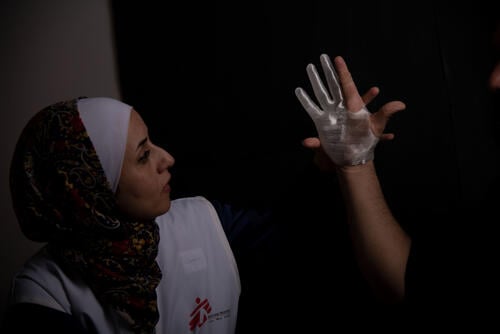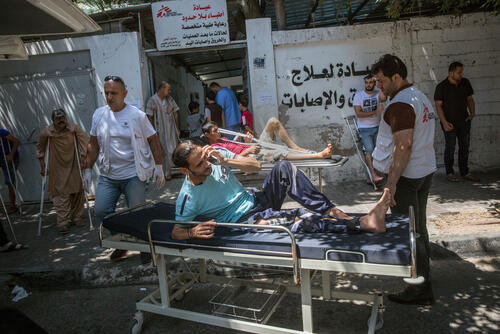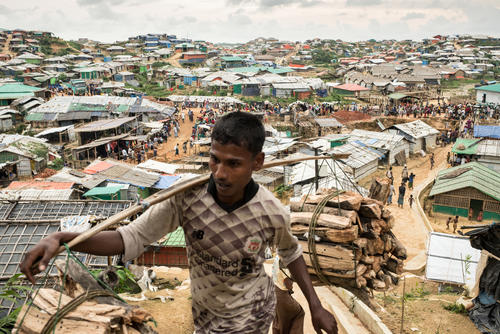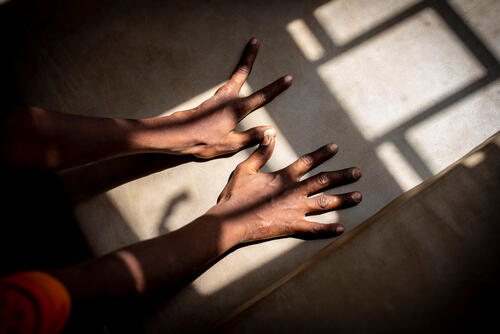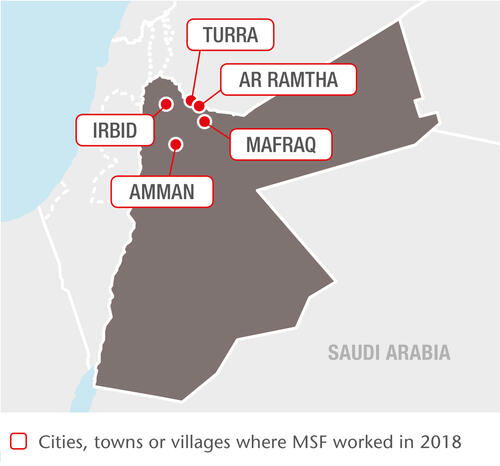
69,000
69,
11,200
11,2
2,690
2,69

1,410
1,41
Following the closure of the border between southern Syria and Jordan and the announcement of a ‘de-escalation zone’ in southwestern Syria in July 2017, the number of refugees and war-wounded entering the country decreased. However, there are still almost 671,000 registered and an unknown number of unregistered Syrian refugees in Jordan, most of whom rely on humanitarian assistance to meet their basic needs. In February 2018, the Jordanian government announced the cancellation of subsidised healthcare for Syrian refugees, making it even more difficult for them to access medical services.
Non-communicable diseases (NCDs)
Our three clinics in Irbid governorate provide Syrians and vulnerable Jordanians with treatment for NCDs, a leading cause of death in the region. The teams offer medical and mental healthcare, including home visits, psychosocial support, physiotherapy and health promotion, to patients with diseases such as diabetes and hypertension. In 2018, we carried out more than 21,000 outpatient consultations and over 4,000 individual mental health consultations.
In 2018, we also supported a primary healthcare centre in Turra, in Ar Ramtha’s Sahel Houran district, where we conducted outpatient consultations for Syrian refugees and the local community, before handing over to the Ministry of Health.
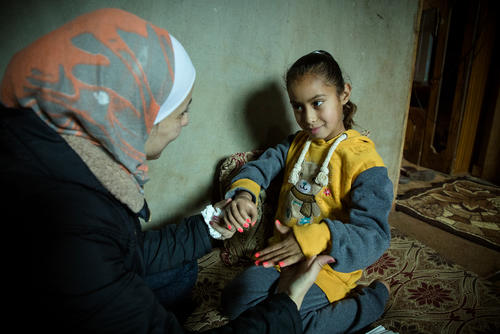
Maternal and child health
We have been running a maternity department and a 16-bed neonatal intensive care unit in Irbid since late 2013, assisting a total of around 16,000 deliveries. In the nine months to September, when we handed over the maternity department to another NGO, our teams carried out 11,000 antenatal consultations, assisted almost 2,700 births and admitted 664 newborns.
In 2018, we increased our focus on mental healthcare, offering support to Syrian children and their parents in Mafraq governorate.
Reconstructive surgery for victims of violence in the Middle East
Our reconstructive surgery hospital in Amman continued providing comprehensive care to a monthly average of 200 patients with conflict-related injuries from neighbouring countries, mainly Iraq, Syria, Yemen and the Occupied Palestinian territories. This includes orthopaedic, plastic and maxillofacial surgery, physiotherapy, mental health support and fitting prosthetics.
Since 2016, we have been 3D-printing upper-limb prosthetic devices that are essential for patients to regain their physical integrity and autonomy. In 2018, our teams performed 1,160 surgical interventions.
Emergency surgery in Ar Ramtha
In early 2018, we took the difficult decision to close our 41-bed surgical facility in Ar Ramtha, due to the sharp decrease in the number of wounded patients referred from southern Syria following the closure of the border in June 2016.
Since September 2013, the project had helped thousands of patients recover from physical injuries, as well as psychological trauma. In just over four years, our teams tended at least 2,700 war-wounded patients in the emergency room, carried out over 3,700 major surgical interventions, performed more than 8,500 physiotherapy sessions and conducted around 5,900 psychosocial support sessions.



